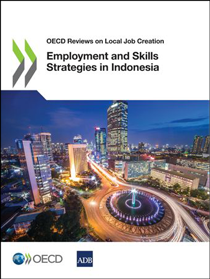Local Employment and Economic Development (LEED Programme)
Southeast Asia Regional Policy Network on Education and Skills
|
WHAT'S THE ISSUE? Southeast Asia is confronted with significant skills and labour market challenges. The region is growing at a rapid pace, industry is becoming more diversified, and job requirements are demanding more complex and sophisticated skills. A highly skilled labour force is increasingly important for economies to remain competitive and achieve sustainable growth. Effective skills strategies can play a significant role in helping national economies to adjust to changes in working practices, advances in technology, and challenges associated with globalisation.
ABOUT THE NETWORK The aim of the OECD’s Southeast Asia Regional Policy Network on Education and Skills is to foster knowledge exchange in support of national growth and regional integration by encouraging a whole-of-government approach to the formation and implementation of skills policies. The SEARPN on Education and Skills builds on the platform of the OECD’s Employment and Skills Strategies in Southeast Asia (ESSSA) initiative, which has been networking skills and labour ministries from ASEAN and OECD Member States since 2008.
|
IN FOCUS Employment and Skills Strategies in Indonesia (2020)
|
|
|
PUBLICATIONS AND PAPERS Employment and Skills Strategies in Indonesia (2020) Employment and Skills Strategies in the Philippines (2017) Building local responsiveness in employment and skills systems in Southeast Asia (2017)
PAST MEETINGS 10th edition: 21-22 November 2018, Lao PDR | Summary 9th edition: 11-12 Oct. 2017, Viet Nam | Summary 8th edition: 11-12 Oct. 2016, Philippines | Summary 7th edition: 7-8 Oct. 2015, Cambodia | Summary |
LINKS
|
PARTICIPATING COUNTRIESBrunei Darussalam, Cambodia, Indonesia, Lao PDR, Malaysia, Myanmar, The Philippines, Singapore, Thailand, Viet Nam and neighboring economies such as China, India, Japan, Korea, Australia and New Zealand. |
JOIN USThe Network is open to local governments, employment services, training institutions, local and international development strategies. |
CONTACT: For further information, please contact Kristine Langenbucher.
Related Documents
